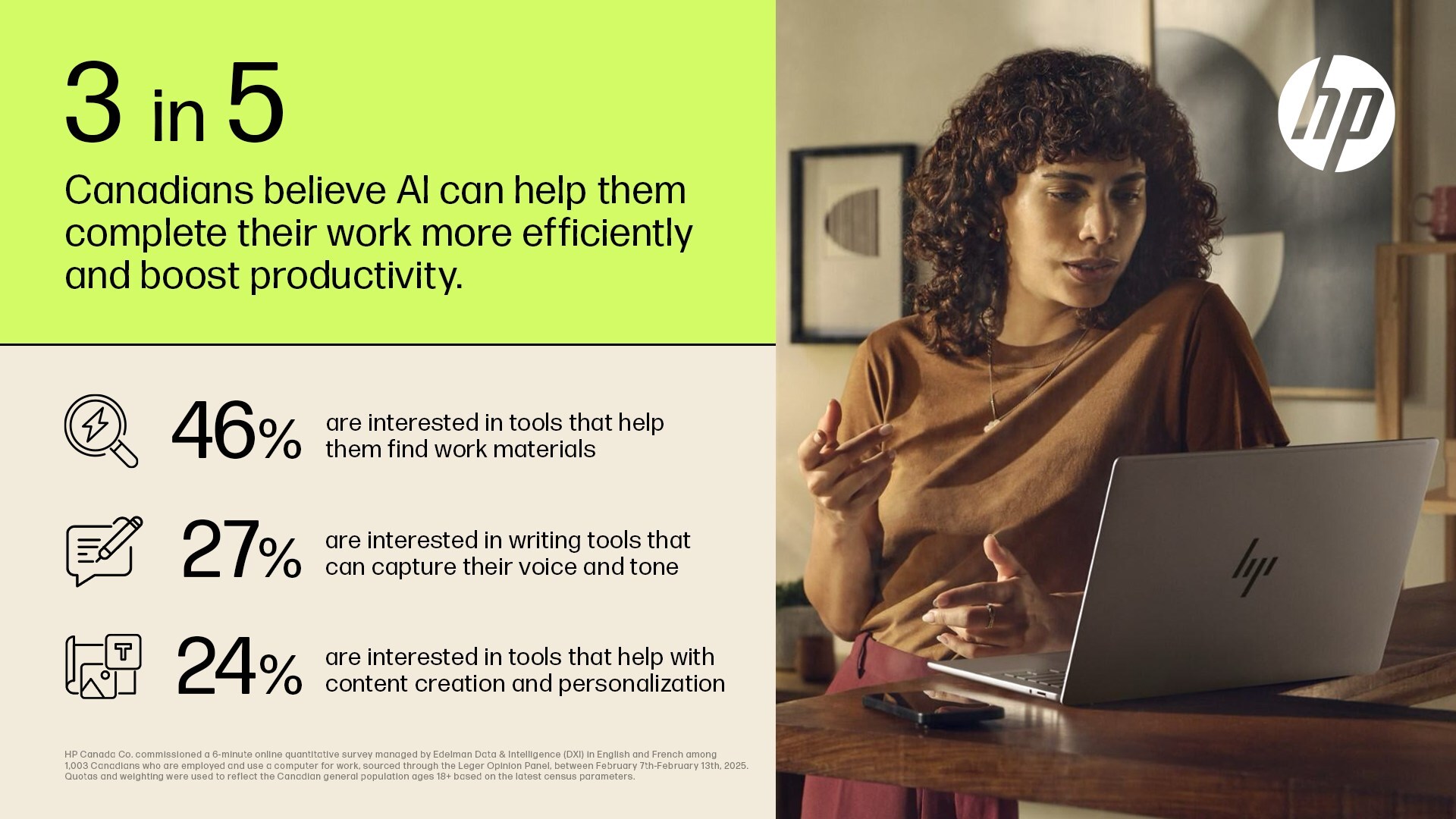
But nearly two-thirds say AI can help boost productivity

As Canadians adjust to the disruptions caused by daylight savings, long weekends, and extended leave, many are finding it difficult to regain momentum at work.
A recent survey by HP Canada has highlighted the key pain points experienced by employees returning after time off—and how artificial intelligence (AI) could be the solution to easing their transition.
The study, which surveyed 1,003 Canadian workers who use computers for their jobs, found that 71% dread sorting through unread emails and catching up on administrative tasks when they return. Additionally, 20% reported struggling to balance personal and professional responsibilities post-time off.
Beyond the backlog of tasks, sleep loss caused by daylight savings or travel is taking a toll on workplace interactions. Nearly 1 in 3 (35%) respondents admitted to having less patience and feeling irritable after insufficient rest, with some noticing a decline in politeness and more curt communication.
The consequences of sleep deprivation extend beyond mood changes, with 28% of respondents saying they feel they cannot be their best selves at work after losing an hour of sleep, found HP Canada.
Another 22% predicted lower productivity, while 18% reported difficulties concentrating.
The report indicates a strong appetite for AI-powered workplace tools that could help employees manage workloads more efficiently:
"The struggle to catch up—due to time change, travel, meetings, or personal time off—can feel overwhelming without the right technology," said Michelle Biase, President and Managing Director of HP Canada. "AI is proving to be a transformative ally, enhancing not just productivity but also well-being by making work simpler and more meaningful."

Despite this enthusiasm, a knowledge gap remains—59% of respondents either lack direct experience with AI or do not fully understand how it works, found the survey.
"AI is redefining the future of work, offering businesses a powerful opportunity to empower their talent," Biase added. "By providing AI-enabled technology and the right training, companies can simplify workloads, optimize workflows, and elevate work quality—ultimately driving greater job satisfaction."